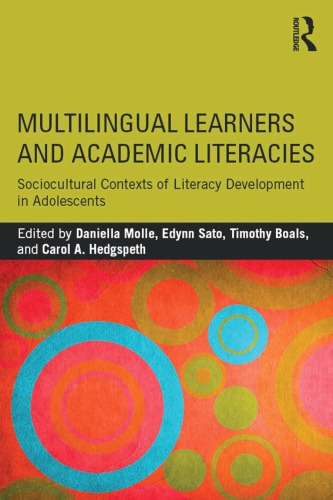

Most ebook files are in PDF format, so you can easily read them using various software such as Foxit Reader or directly on the Google Chrome browser.
Some ebook files are released by publishers in other formats such as .awz, .mobi, .epub, .fb2, etc. You may need to install specific software to read these formats on mobile/PC, such as Calibre.
Please read the tutorial at this link: https://ebookbell.com/faq
We offer FREE conversion to the popular formats you request; however, this may take some time. Therefore, right after payment, please email us, and we will try to provide the service as quickly as possible.
For some exceptional file formats or broken links (if any), please refrain from opening any disputes. Instead, email us first, and we will try to assist within a maximum of 6 hours.
EbookBell Team

0.0
0 reviewsShifting the discourse from a focus on academic language to the more dynamic but less researched construct of academic literacies, this volume addresses three key questions:
• What constitutes academic literacy?
• What does academic literacy development in adolescent multilingual students look like and how can this development be assessed?
• What classroom contexts foster the development of academic literacies in multilingual adolescents?
The contributing authors provide divergent definitions of academic literacies and use dissimilar theoretical and methodological approaches to study literacy development. Nevertheless, all chapters reflect a shared conceptual framework for examining academic literacies as situated, overlapping, meaning-making practices. This framework foregrounds students’ participation in valued disciplinary literacy practices. Emphasized in the new college and career readiness standards, the notion of disciplinary practices allows the contributing authors to bridge the language/content dichotomy, and take a more holistic as well as nuanced view of the demands that multilingual students face in general education classrooms. The volume also explores the implications of the emphasis on academic literacy practices for classroom instruction, research, and policy.